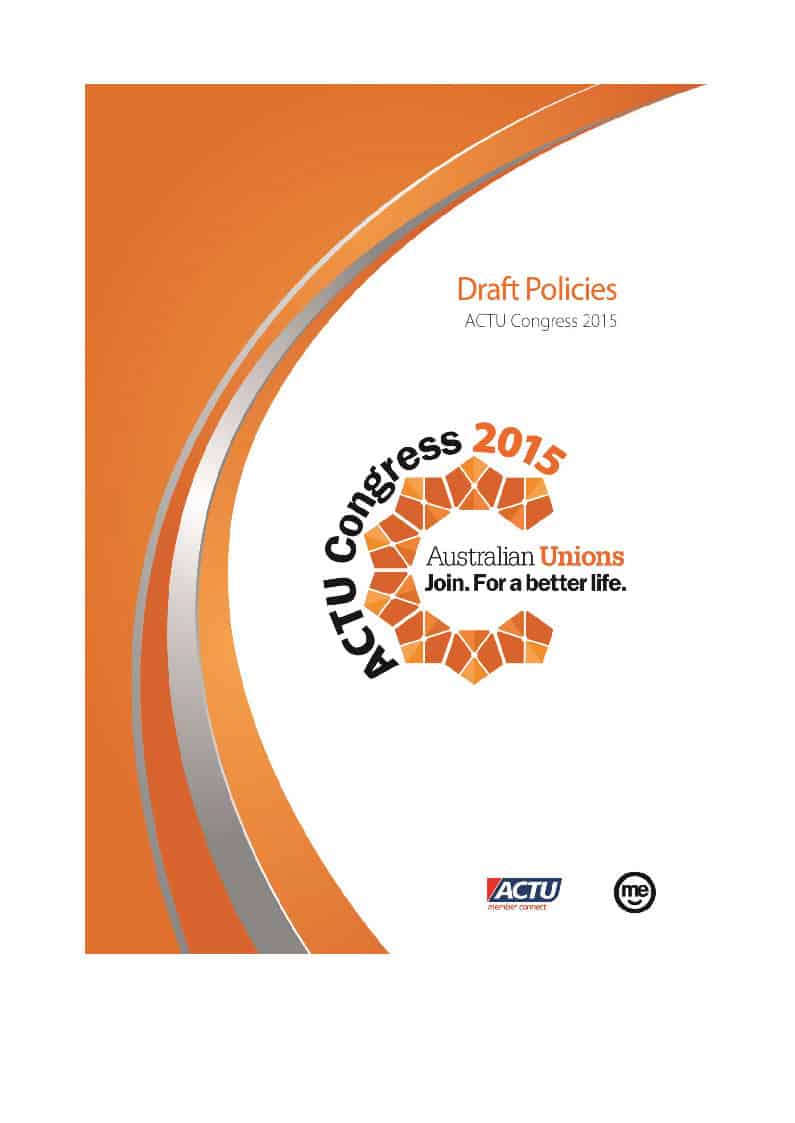There is a clear link between the modern take on occupational health and safety (which includes psychosocial health) and productivity. However, there are seriously mixed messages coming from the Productivity Commission (PC) in its current inquiry into Australia’s Workplace Relations Framework.
In Senate Estimates on 3 June 2014 (draft Hansard), the Chair of the Productivity Commission, Peter Harris, and Assistant Commissioner, Ralph Lattimore, briefly discussed OHS. Harris acknowledged that some of the submissions to the current inquiry discussed OHS matters (page 65) but Lattimore stated:
“….we did say that we would quarantine the inquiry away from workforce health and safety issues unless they were directly related to, say, enterprise bargaining or some feature of the relationship between employers and employees. We were aware of the large amount of regulation in that area, and we were not planning to revisit that.”

 The Australian Council of Trade Unions (ACTU) commences its
The Australian Council of Trade Unions (ACTU) commences its